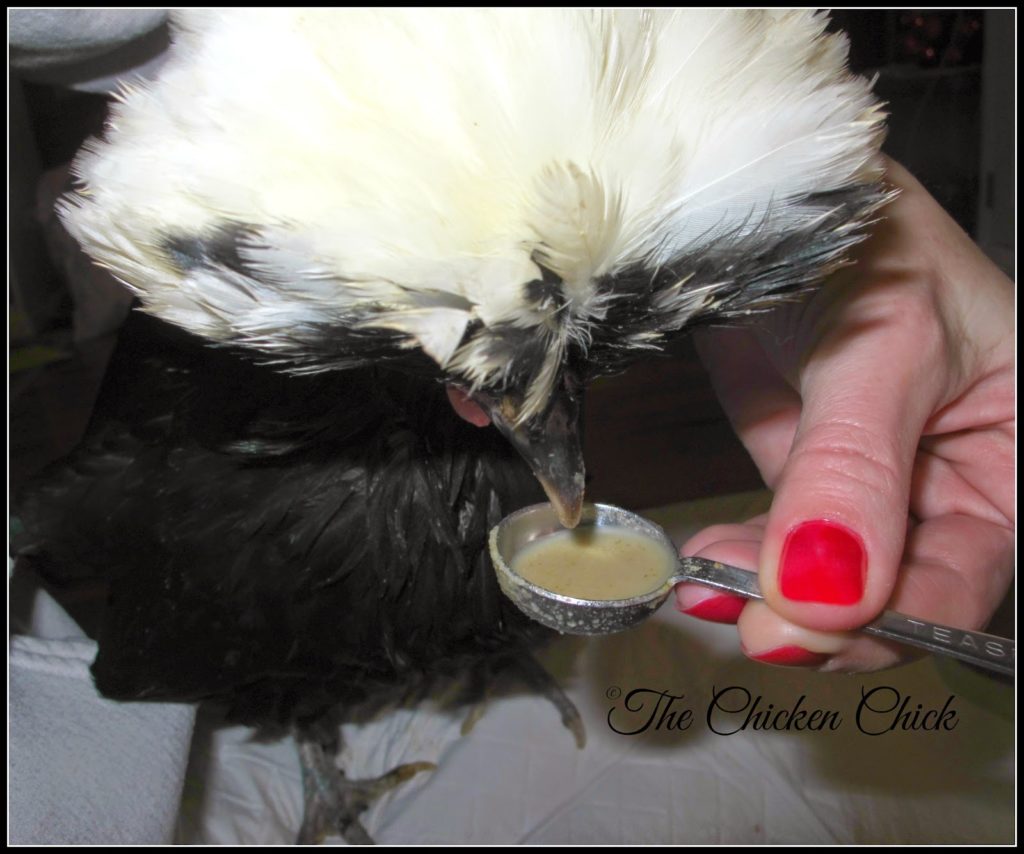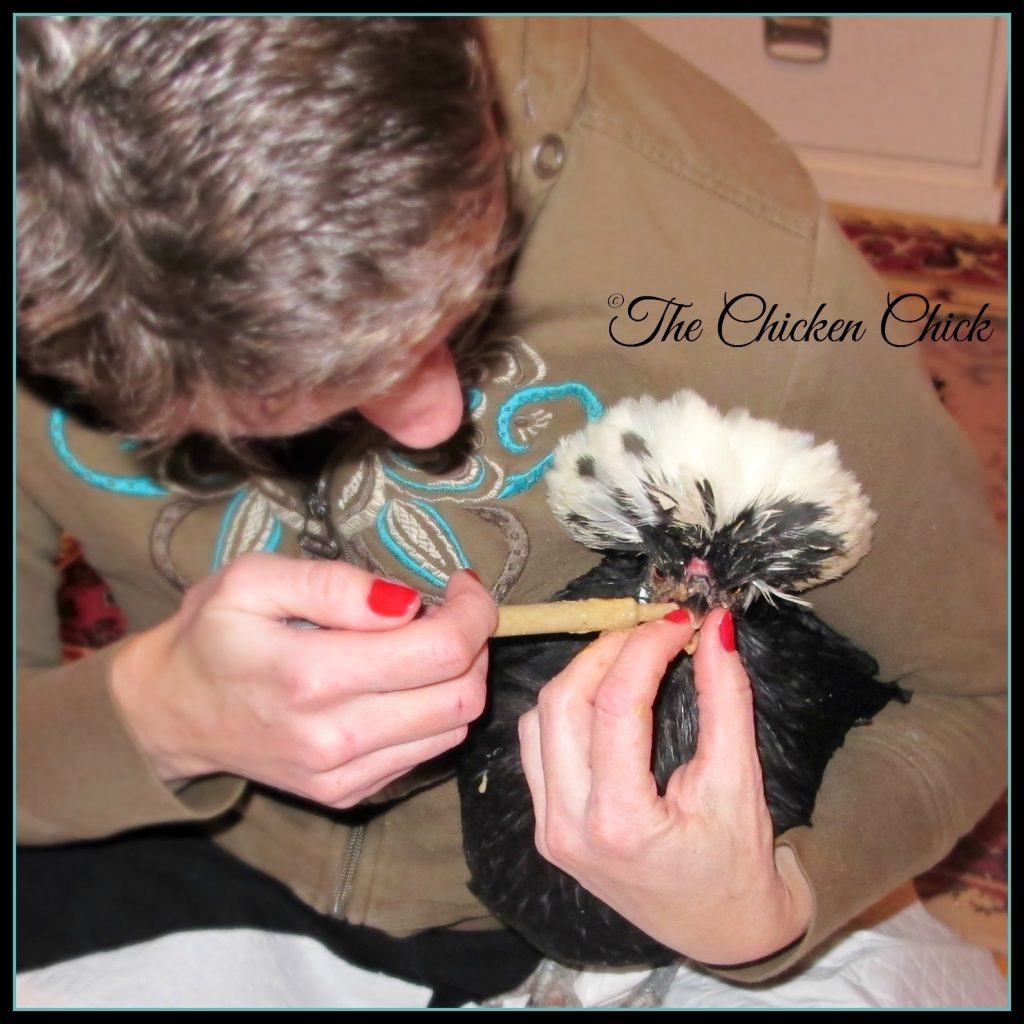DO HYDRATE
Priority #2 is to keep the sick chicken hydrated throughout the crisis even if that means offering water by spoon or dropper frequently. Water is involved in every aspect of a chicken’s metabolism from regulating body temperature to digesting food, and eliminating body wastes and if the bird is not hydrated, it does not stand a chance of fighting illness.
Adding a vitamin/electrolyte supplement into the drinking water for a day or two can help an already dehydrated chicken re-hydrate. In the absence of electrolytes, Gatorade may be substituted.
Food is much less critical than water initially for a sick bird. If the chicken is not eating independently, they can be fed by spoon, dropper, syringe or tube fed a liquid diet. Layer feed can be can be crushed with warm water or warm milk to make a soupy mash, which a sick chicken may find enticing when little else does.

DIGESTIVE SUPPORT
A poultry veterinarian shared with me that they prescribe ProZyme to their sick patients. ProZyme helps sick chickens produce the enzymes needed to digest feed properly and makes feed ingredients more bio-available when they most need them. Add 1/4 teaspoon per 1 cup of feed.

DO NOT ALTER THE DIET
If the bird is eating and drinking normally, do not drastically change their diet by offering foods or supplements they do not ordinarily take- doing so can complicate the assessment and identification of the problem and make an unwell chicken feel even worse.
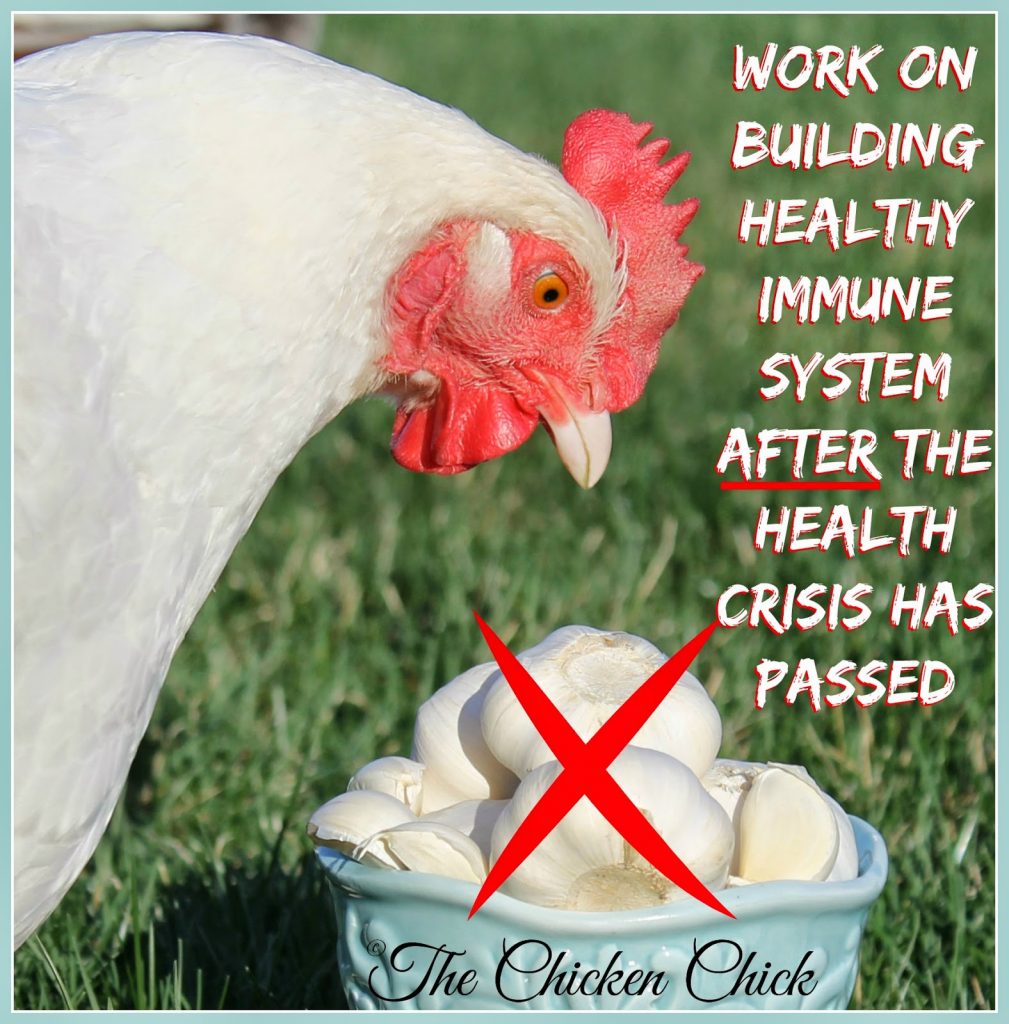
If herbal or other dietary supports have not already been a part of a chicken’s regular routine, they should not be offered during an illness. Work on building a healthy immune system after the chicken’s health crisis has passed.
For example, garlic. Who wants a dish of garlic or a shot of vinegar on their nightstand when they’re ill? I don’t and wouldn’t give that to a sick chicken either.
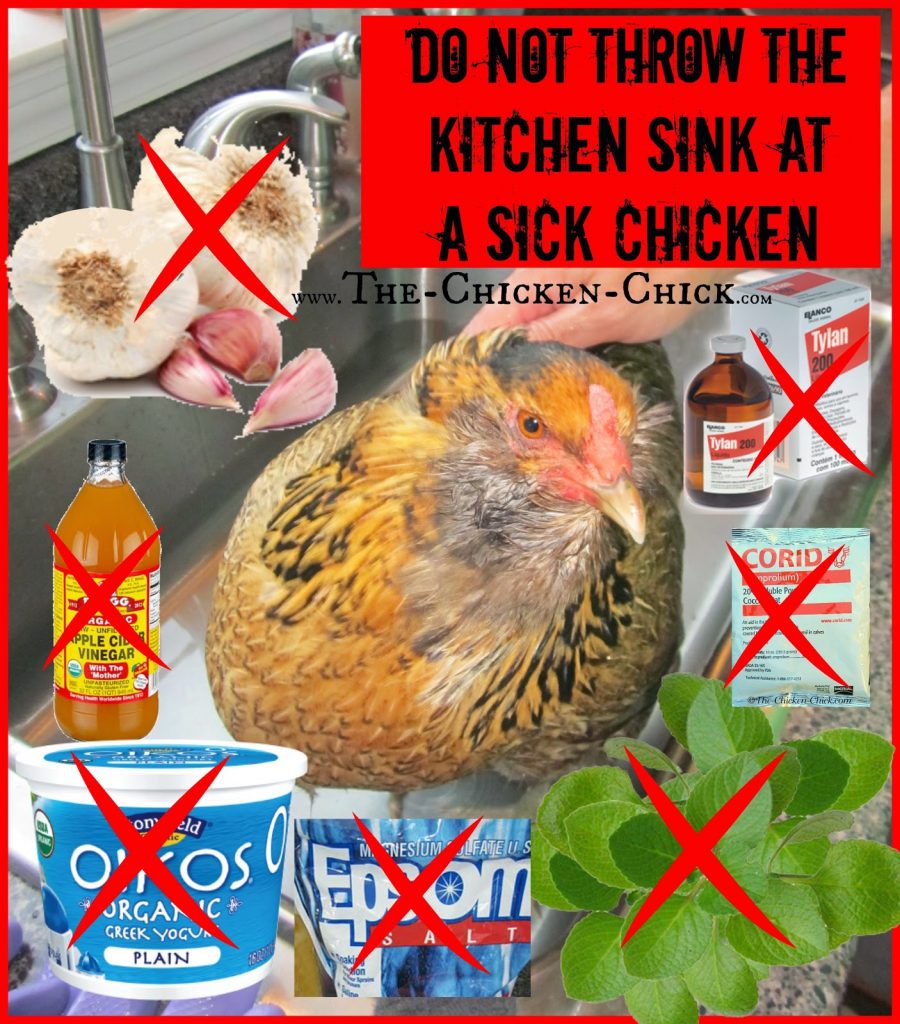
DO NOT TREAT or MEDICATE RANDOMLY
Without knowing what the underlying issue is, randomly treating or medicating a sick bird can make their condition much worse and complicate the ability to determine the real problem. Do not rush to offer de-wormers, antibiotics, garlic, vinegar, molasses or oregano to a sick chicken.
ABOUT ANTIBIOTICS
Antibiotics should not be offered to a sick chicken arbitrarily. Many illnesses share similar symptoms and determining whether the cause of an illness is bacterial or non-bacterial is only possible through laboratory testing.
Since antibiotics only treat bacterial infections they are useless and potentially harmful to chickens when:
-administered for a non-bacterial infection
-adminstered in the wrong dosage
-administered for the wrong period of time
-adminstered via the wrong route (eg: in the water, in the feed, injected into the muscle)
-the wrong type of antibiotic is being administered
The misuse of antibiotics can make the bird sicker and lead to antibiotic resistance in the flock. Only a treating veterinarian can prescribe antibiotics for laying hens. Learn more about this topic here.
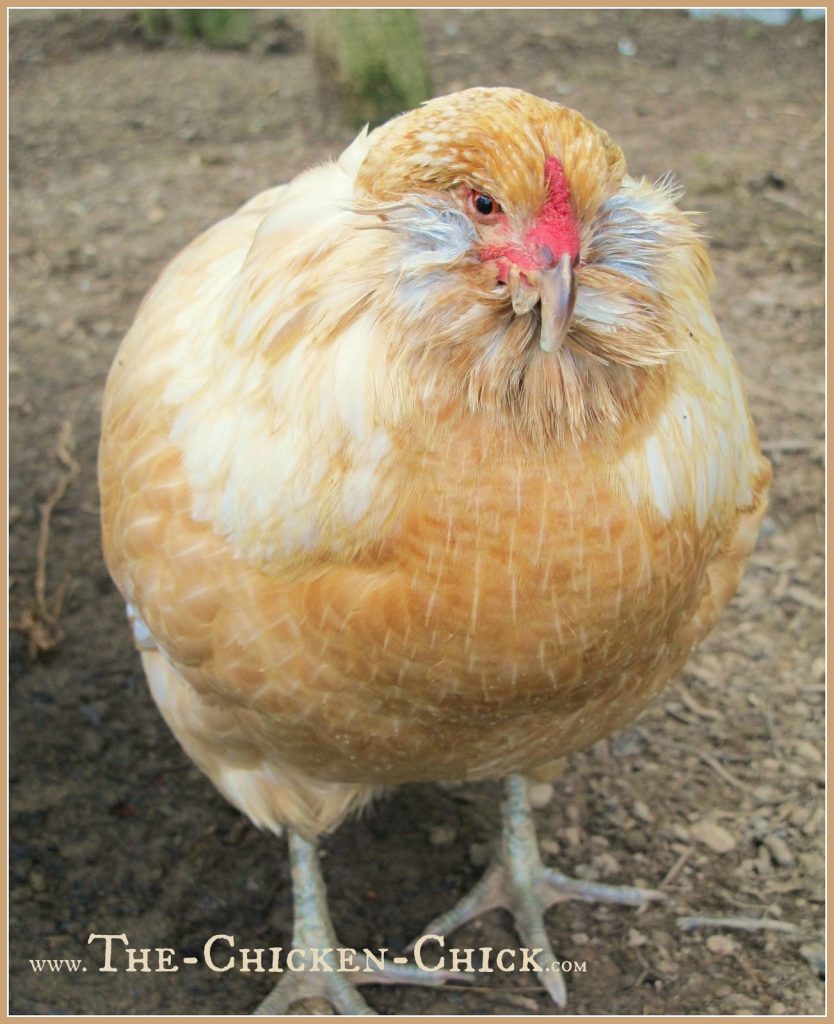
This is Esther, a 4 year old Easter Egger who was put to sleep by her vet. Necropsy revealed that she had extensive reproductive cancer.
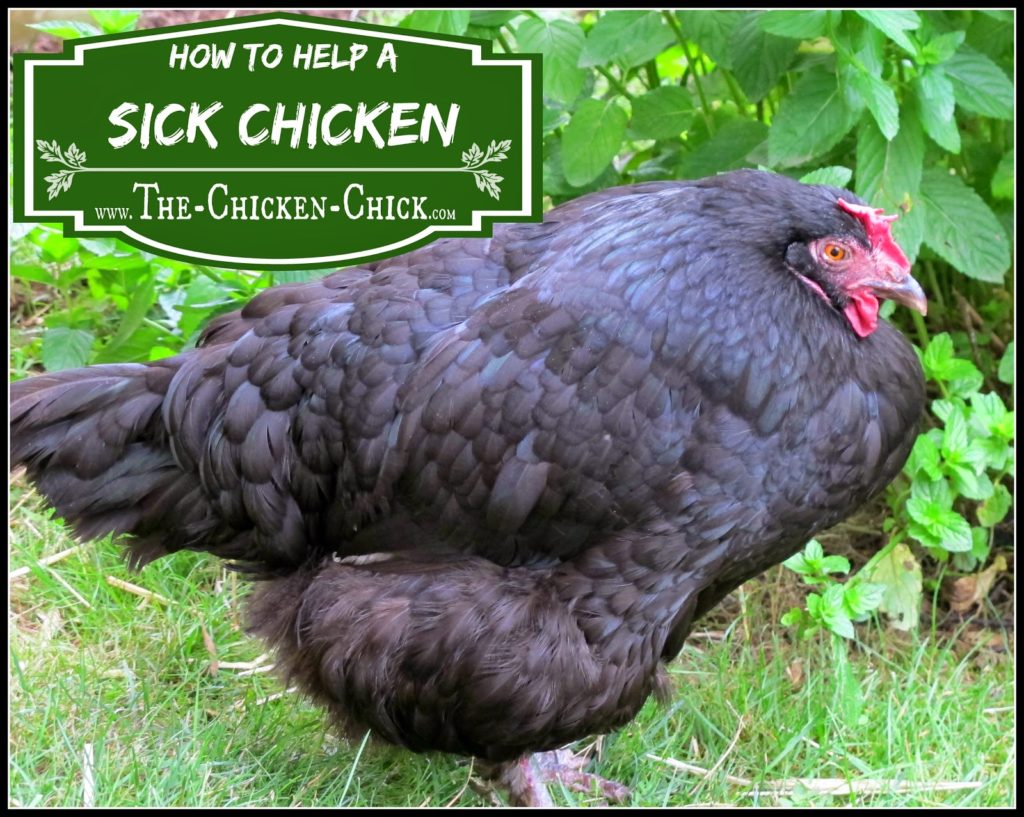
DO TROUBLE-SHOOT
In desperation, most of us without vets have or will turn to books or chicken-keeping friends for help trouble-shooting a sick chicken’s symptoms. The following questions can be useful in narrowing down the range of possible problems:
- What’s the age of the bird?
- When was the last time she laid an egg?
- Does she feel lighter or thinner than usual?
- How long have the symptoms been present?
- Any new additions to the flock recently?
- Any other birds in the flock exhibiting any similar or other symptoms of illness?
- Any bleeding, injury, broken bones, bruising or other sign of trauma?
- Is the bird eating and drinking, normally?
- If so, what does the daily diet consist of?
- Any changes in the diet recently?
- Could she have eaten something poisonous?
- Do the droppings look normal?
- Any worms in the droppings?
- Does her crop feel full/empty/hard/soft?
- Does the crop empty overnight? Is her abdomen hard, soft, full, squishy? Are there any dirty feathers near the vent?
- Any insects on the skin or feathers, particularly near the vent?
- Any unusual lesions on the body, under the skin, comb, wattles or in the mouth?
- Is she sneezing, coughing, wheezing, having trouble breathing?
- Is there any facial swelling?
- Is there any nasal/mouth or eye discharge?
- Watery or bubbly eyes?
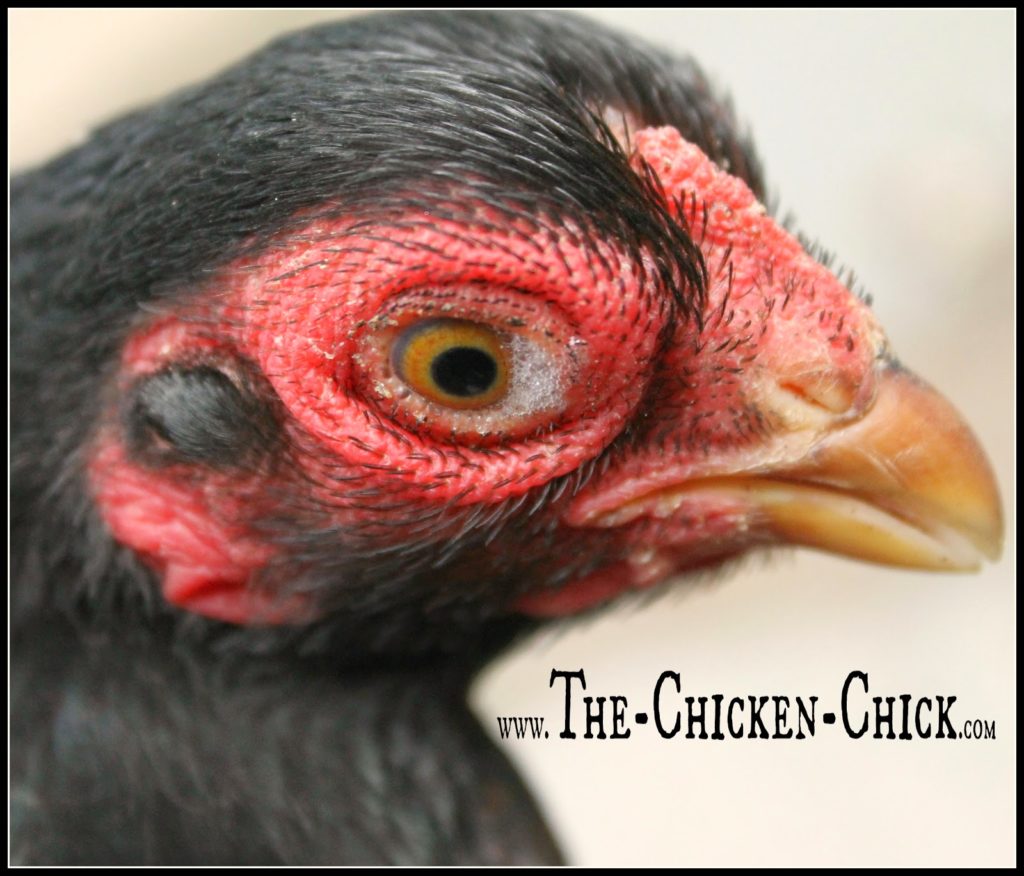
RESOURCES
Tap into any/all of the state, local and national professional resources listed here as needed.

Once you have some idea about what could possibly be going on with your chicken, visit my Chicken Care Guide for common chicken ailments and at-home treatments when a vet is not an option. I highly recommend having The Chicken Health Handbook, 2nd ED, Damerow, Gail on hand for amateur diagnostics and trouble-shooting.
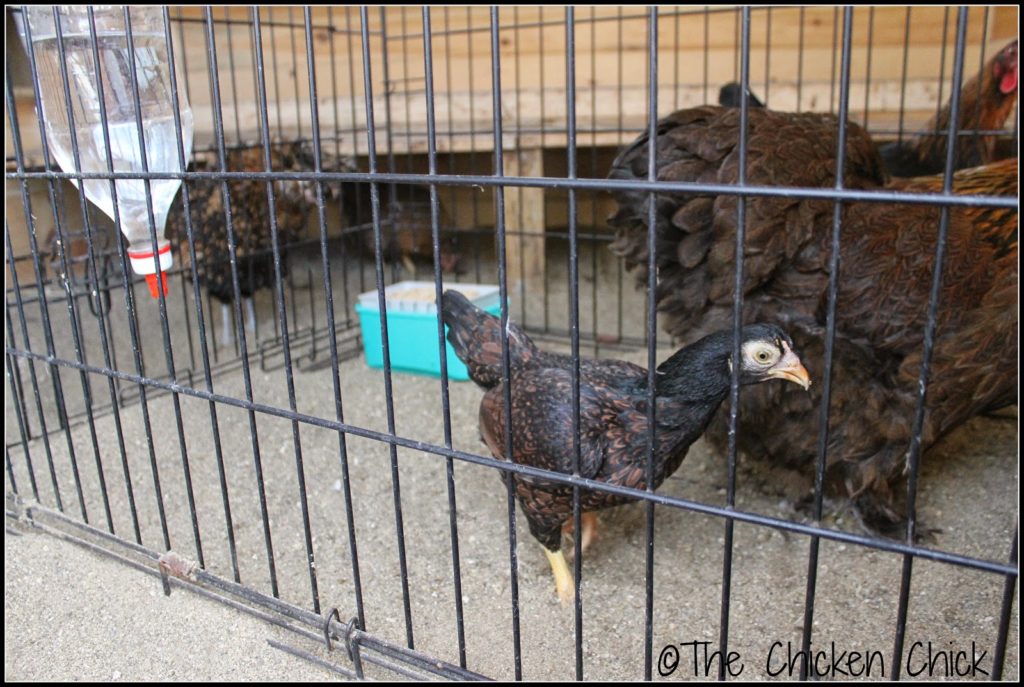
RE-INTEGRATE PROPERLY
When a sick chicken is well, they should be reintroduced to the flock as if they were a complete stranger to ensure a smooth transition, the least amount of stress possible and no violence. I recommend the Playpen Method for this purpose.

DO HAVE A EUTHANASIA PLAN
The worst case scenario is always death and sometimes the kindest thing we can do for a chicken beyond saving is to help end their suffering kindly. Many vets, even those that do not treat chickens, will agree to euthanize a sick or dying bird. Find out who those vets are in advance of needing one.
Locate your state veterinary diagnostic laboratory. Many labs will offer euthanasia services prior to a necropsy. Each state has a veterinary lab that will run tests and perform postmortem examinations on animals to determine the cause of death. Know where your lab is, how to contact them and which services they offer. **Always get a necropsy done on any bird that dies of unknown causes for the protection of the surviving flock members and for peace of mind.**
Euthanasia by Cervical Dislocation
In my experience, the fastest, least gruesome and most humane method of euthanasia is cervical dislocation or “breaking” the chicken’s neck, which causes instant unconsciousness and death. For precise instructions from poultry veterinarian Mike Petrik for executing this method properly click HERE.

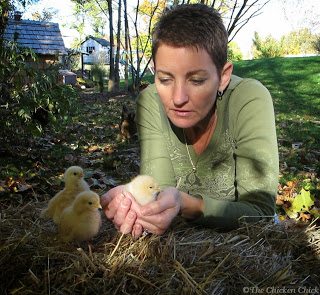


to enter THE GIVEAWAY!
2) COMMENT below this article.
Eligibility limited to US residents only. Giveaway ends 06/03/24 9pm EST.
Winners chosen by random drawing from eligible entries and notified on my Facebook page in a post and via email and/or here.
ADVISORY: I will NEVER MESSAGE you privately or on Facebook messenger! You should NEVER give your credit card information to anyone claiming you won something! Scammers online are everywhere. Be smart, stay safe.

